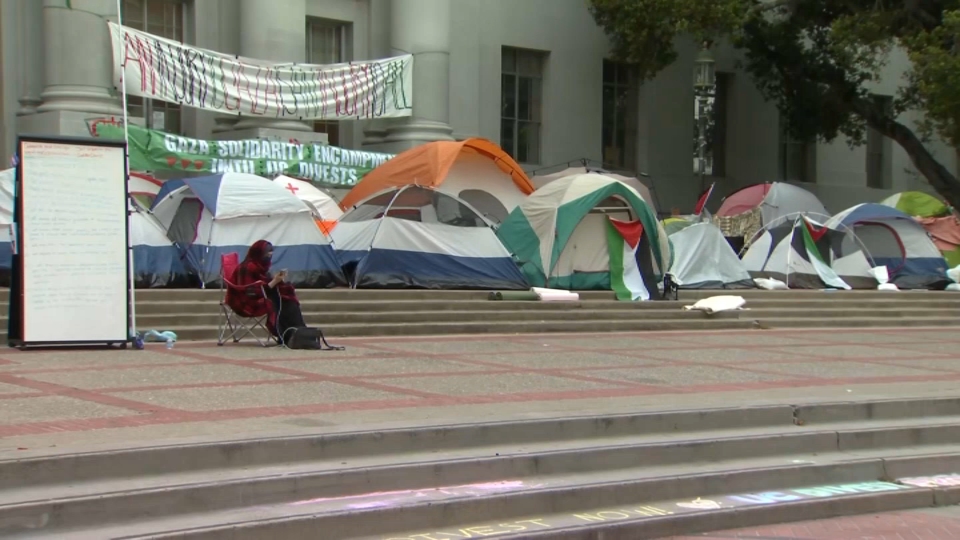Dozens of Wells Fargo employees filed whistleblower complaints with the federal government, alleging the company retaliated against them for raising red flags about corporate and consumer financial fraud, the NBC Bay Area Investigative Unit has learned.
The new data, provided by the Department of Labor’s Occupational Health and Safety Administration (OSHA), reveals that as early as 2010, both Wells Fargo and the government knew about widespread concerns involving the nation’s third largest bank. The numbers were released earlier this month in response to an inquiry by the Investigate Unit.
OSHA’s “preliminary analysis” shows the administration received 65 retaliation complaints across the country from 2010 to September of this year. Wells Fargo complainants sent their cases to the administration’s Whistleblower Protection Program, which is tasked with enforcing various whistleblower laws.
This information has come to light as another former investigator revealed what she believes are flaws in the program designed to protect employees from retaliation. Last month, a former longtime whistleblower investigator detailed how he believes his office mishandled the case of a Bay Area Wells Fargo employee.
It is unclear how many complaints relate to Wells Fargo’s phony account scandal, in which employees fraudulently opened 2 million customer bank accounts and credit cards. But OSHA reports that the majority of the complaints – 63 percent – were filed under statutes that protect employees from retaliation for reporting suspected bank or securities fraud and consumer financial fraud.
The data shows 15 complaints were filed in the western part of the country, where OSHA’s San Francisco regional office is less than two miles from Wells Fargo’s corporate headquarters.
Local
For years, Wells Fargo employees secretly opened credit cards and bank accounts without the consent of customers. In September, the government fined Wells Fargo $185 million for its fraudulent sales practices. The bank fired 5,300 people, but that didn’t stop Congress from skewering former CEO John Stumpf over unethical activity and allegations that the company retaliated against employees who raised red flags to management.
Click here to watch NBC Bay Area's first investigative report about Wells Fargo and OSHA.
Yesenia Guitron is one of those employees.
She worked as a personal banker at Wells Fargo’s St. Helena branch in the Napa Valley from 2008 to 2010. The Investigative Unit first reported in October that Wells Fargo fired Guitron after she said she alerted the company that bankers had opened fake customer accounts to meet sales goals.
“I did what I was told to do,” she said. “What I was instructed to do by the internal training department and ethics department.”
Guitron filed a whistleblower complaint with OSHA in May 2010. But former whistleblower investigator Darrell Whitman revealed to the Investigative Unit last month that no one inside the administration actually investigated her complaint. Instead, he said OSHA’s regional office in San Francisco stalled the complaint for six months and assigned the case to him only to close it, when Guitron filed a federal lawsuit. The court ultimately dismissed her case.
Wells Fargo spokesman Ruben Pulido said company policy prohibits retaliation against employees for reporting information about suspected illegal behavior, including fraud, securities law or regulatory violations.
Yosef Peretz, Guitron’s attorney, believes OSHA failed to recognize the gravity of the claims submitted by his client and other Wells Fargo whistleblowers.
“OSHA did not pay attention to any type of widespread, nationwide allegation of fraud or unethical conduct at Wells Fargo,” he said.
Another Wells Fargo whistleblower complaint crossed Sue Kamlet’s desk in 2014. The former employment lawyer and Assistant U.S. Attorney investigated retaliation complaints for OSHA’s regional office in San Francisco for eight years.
But the Wells Fargo case sat in the back of Kamlet’s file cabinet until she said it was transferred to her supervisor. She said her office was bogged down in a sea of other cases, many of which sat with no action. The Investigative Unit learned that the Wells Fargo case briefly assigned to Kamlet was filed in 2011, and that it’s still pending today.
“That doesn’t surprise me because of the backlog,” Kamlet said. “This huge backlog affected everything we did. Wells Fargo cases were newer than other cases. We handled cases, for the most part, first in – first out.”
The Department of Labor said OSHA is still investigating a handful of Wells Fargo whistleblower complaints. In a September letter to Sen. Elizabeth Warren (D-Mass.), who has emerged as one of the company’s most fervent critics, the department said that some complaints had no merit under whistleblower laws. The department reported most of the Wells Fargo cases had been concluded through “settlements or other actions.”
But Kamlet points out what she considers to be a problem with whistleblower cases that settle. She said investigators would gather evidence in response to claims of wrongdoing, but unless enforcement agencies specifically asked to review the evidence, the information would go nowhere if cases settled.
“We’d have complainants alleging fraud – sometimes at the criminal level – and the cases would settle,” she said. “The company would settle and the evidence would go to the back of the file cabinet.”
The Whistleblower Protection Program routinely provides summaries of allegations to federal regulatory agencies when people file complaints, but “there is no mechanism for investigators to provide evidence forward to enforcement agencies” Kamlet said.
Congress tasked OSHA with protecting whistleblowers from retaliation, but Kamlet said the administration is also responsible for furthering the public interest by preventing activity – like financial fraud – that could harm consumers.
Kamlet and Whitman have been vocal critics of the Whistleblower Protection Program, alleging that dysfunction inside of their office has failed to bring complainants justice and failed to expose public health and safety concerns and corporate and financial wrongdoing.
Click here to watch NBC Bay Area's investigation into OSHA's Whistleblower Protection Program.
OSHA fired Whitman last year because he provided internal information to whistleblowers. Whitman filed his own retaliation case with the federal government earlier this year. That case is pending.
Kamlet said the administration fired her in January for failing to efficiently resolve her cases.
Both believe they were terminated for speaking up about problems inside OSHA. A spokesman said the administration can’t comment on personnel issues.
In September, the Department of Labor asked OSHA to undertake a top-to-bottom review of all whistleblower cases related to Wells Fargo since 2010 to “determine what the facts are, what we can do about them and how we can learn from this situation."
Kamlet said she lacks confidence in the department’s ability to police itself.
“I have been given no reason to trust the Department of Labor,” she said.
The Department of Labor did not respond to multiple requests for comment about Kamlet’s claims.
If you have a tip for the Investigative Unit, e-mail theunit@nbcbayarea.com. Follow Liz on Twitter and Facebook.



